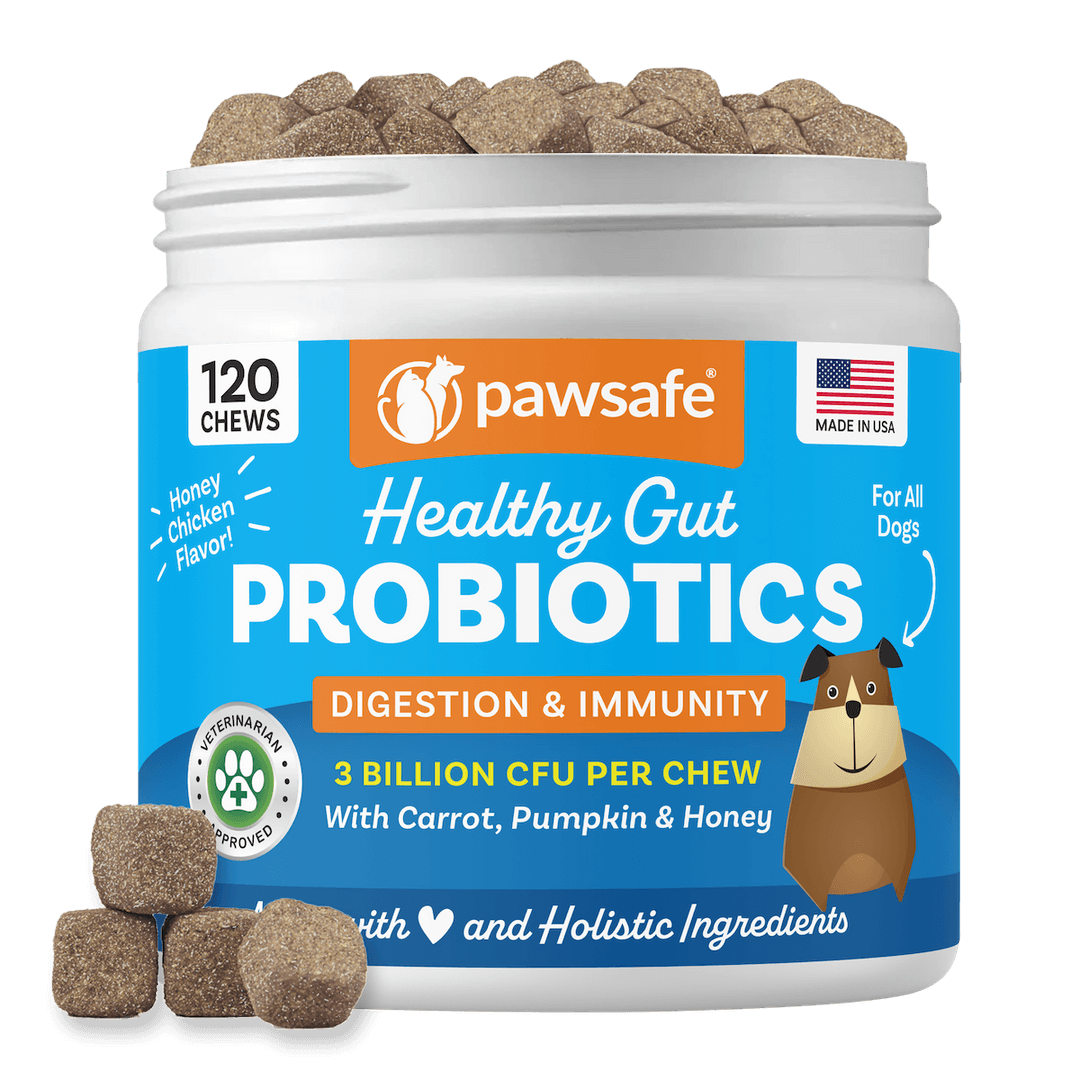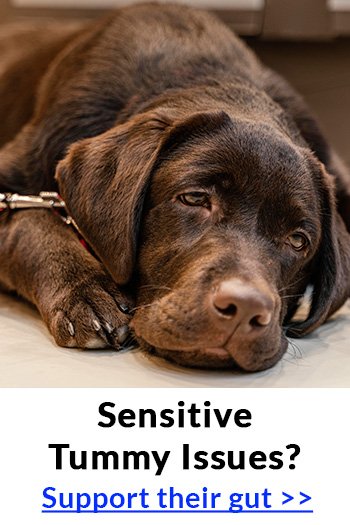
To a novice dog parent, your dog pooping clear liquid can be frightening. Not all poop with a clear liquid is a medical emergency, but instances of severe doggy diarrhea typically means stomach issues and other severe health problems.
Examining your pooch’s poop before picking it up keeps you in the loop on their health status. Runny poop can remain on your dog’s bum, and they may generously transfer it to your couch and floors. A quality odor and stain remover is a great idea to save you the agony of stench and stains.
Since there’s no one-size-fits-all approach for clear liquid in poop, we will analyze all the different reasons it happens.
Table of Contents
So, Why Dogs Poop Clear Liquid
Dogs poop clear liquid because of diet changes, infections, worms, indulging in spoiled foods, ingesting poisonous substances, and stress or anxiety. Spotting only a little clear liquid is probably normal and is, luckily, not caused by a medical problem.
As a dog owner, you may find yourself obsessing over your dog’s poop at times. What’s its color? The shape? Consistency? This poop hyperfixation actually proves that you’re a good pawrent and will keep you ahead of any medical issue causing stool changes.
Let’s first look at what makes a poop liquid.
What is The Clear Liquid in Poop?
The clear liquid in your dog’s poop is mucus secreted by large intestines as a protective lining from bacteria. The clear jelly-like liquid also lubricates the stool to avoid constipation. Since the poop mucus serves a purpose in your dog’s body, it’s harmless to observe a bit of it occasionally.
Excessive mucus in poop is the real culprit and suggests that something is a miss from your dog’s stomach. Mucoid discharge in canine poop is most often a result of one of the following conditions and medical problems. If you notice red dog poop along with clear liquid, this could indicate a more serious issue.

A dog may also smelly, brownish liquid from their anal glands. These will usually express naturally when they poop, but it can sometimes happen when they are nervous or excited. Anal gland fluid expressing randomly can signify a bigger problem that may need surgery.
1. Diet Change, Allergies, and Food Intolerance
Changing your dog’s diet suddenly can lead to gastrointestinal tract issues, resulting in vomiting and diarrhea containing a clear liquid.
If you must change your dog’s diet, do it slowly, preferably over 7 to 14 days. During these days, introduce only a small portion of the new food and add it to the old food. Continue adding the new food portions gradually until your dog is consuming 100% of the new food.
If a dog eats something they are allergic to, or something they are intolerant to, such as lactose in milk, you may also see severe diarrhea.
2. Worms
Tapeworms, whipworms, roundworms, and hookworms develop in your puppy’s stomach until they are fully grown. These parasites leech on your dog’s nutrients and cause diarrhea which can contain mucus. You may also observe white specks in your dog’s poop if they have worms.
3. Ingesting Poison and Spoiled Foods
Many human foods like chocolate[1], grapes, and house products are highly toxic to dogs. When a dog ingests a toxic substance, their body will react by forcefully ejecting it by vomiting. If your dog eats their vomit, the condition only worsens. Diarrhea is often a sign of toxicosis and others like convulsions, agitation, and seizures.
4. Bowel and Intestine Conditions
Since the colon produces the mucus in question, any issue affecting it will increase mucus production in the stool.
- Colitis
This is an inflammation of the large intestines caused by bacteria, parasites, worms, stress, trauma, and contact with an infected dog. It can also result in blood in the poop. You will often see this in puppies who are prone to eat food out of the trash. This is why it is also called “garbage disease.”
- Irritable Bowel Syndrome (IBS)
This is a chronic condition where intestinal muscles don’t function properly. It results in bouts of diarrhea and constipation since the speed of these muscles can be too fast or too slow.
- Inflammatory Bowel Disease (IDB)[2]
Easily confused with IBS, this condition is more structural, resulting from physical damage to the digestive tract. Some call it Crohn’s disease, and it occurs when the GI tract is invaded by inflammatory cells.
5. Parvo and Other Infections
Parvo is a fatal illness and should be prevented at all costs. The hallmark of parvo is really smelly, bloody diarrhea along with extreme lethargy, incessant diarrhea, and loss of appetite. Other viruses may also cause violent diarrhea, as can various bacterial infections.
6. Stress and Anxiety
Dogs can experience stress from moving, journeys, or environmental stimuli like thunder. Stress increases norepinephrine, increasing intestinal emptying time, meaning more diarrhea for your dog. Behaviors like excessive paw licking, pillow humping, and hiding can indicate stress.

Daily Support For Healthy Digestion
Multi-strain probiotic soft chews that help maintain gut balance and stool quality in an easy, tasty format.
Shop Now 👉Vet Approved Formula • 90-Day PawSafe® Promise
7. Antibiotics
Antibiotics are prescribed when your furry friend is suffering from a bacterial infection. However, these medications eliminate both good and bad bacteria, causing an imbalance of gut bacteria, which may cause diarrhea in your pup.
When is Pooping Liquid A Problem?
Minor cases of diarrhea and a clear liquid in poop will resolve by themselves within about two days. Pooping liquidy poop is problematic when it persists for days and when there are other symptoms like vomiting and lethargy.
Diarrhea tends to take away more water than your pup takes in, leading to severe dehydration that could end their lives. Before diarrhea gets to this point, watch out for these signs that the situation is dire with your dog:
- Blood in their stool;
- Unusual drooling;
- Vomiting;
- Lethargy;
- Decreased appetite;
- Sunken eyes; and
- Weakness to the point where the dog is struggling to pace around their space.
Some dogs have diarrhea and maintain their character as if there’s nothing wrong. This can either mean that the diarrhea isn’t that bad or that the other symptoms listed above are yet to set in.
What to Do if My dog is Pooping Clear Liquid?
 Keep an eye on your dog when it’s pooping. It not only gives it a sense of security, but can help you spot potential issues
Keep an eye on your dog when it’s pooping. It not only gives it a sense of security, but can help you spot potential issues
You can take a few steps to reduce recurrence and fasten recovery from poop with clear liquid at home. Always remember to consult your vet if symptoms get out of hand.
Observe Their Diet
If you recently changed their meal, hijack the process and introduce the new food gradually. Dogs sometimes are allergic to a particular food, and their owners should make necessary changes when they discover the allergen. Ensure your dog’s diet also has a good balance of fiber, as it plays a massive role in stool consistency.
Monitor Your Dog
It’s essential to make sure that symptoms don’t get worse. If a dog has diarrhea but no other symptoms, then keep an eye on them. But if they become weak, lethargic, refuse to eat, have blood in the stool, pale gums, a fever, or begin to vomit, see the vet immediately. Also see the vet if the diarrhea does not resolve itself in 24 hours, as excessive diarrhea can lead to dehydration and other complications.
Deworm Them
Deworming your pup is essential to eliminate pesky parasites that could cause your dog’s health to deteriorate.
Manage Stress in Yourself and Your Pup
Stress and anxiety are common in canines and could cause stomach upset and diarrhea. Reassure your dog constantly if you just recently moved or if they’re scared of car rides. Dogs can also mirror their owner’s emotions[3], so try to choose happiness for a happier doggo.
Relax
If they have pooped clear liquid only once and out of the blue, it will probably resolve independently in the next episode.
Hydrate Your Dog
Dehydration is diarrhea’s harshest consequence, so give your dog water to restore the water lost through diarrhea. This will keep the dog strong and keep organs functioning properly.

Gut & Immune Support In One Chew
Targeted strains assist normal digestion while supporting natural immune defenses—simple once-a-day routine.
Shop Now 👉Vet Approved Formula • 90-Day PawSafe® Promise
Call the Vet
If they poop clear liquid continually, get them checked by your vet. This way, you will know what you are dealing with rather than guessing, and you’ll increase your dog’s recovery speed.
Normal Stool Consistency
Your pup’s poop can tell a lot about their health just by examining it. Most dog parents spend a couple of minutes every day scooping their dog’s poop and will notice when it’s unusual.
Normal dog poop should be soft, firm, and easy to pass and pick up, and it can be long or segmented. Stool color is mainly determined by whatever the dog had eaten before pooping, but chocolate brown is the ideal poop color in dogs.

Unusual Poop Colors
Yellow or orange: This could indicate too much bile due to a liver issue. It can also show something bad in the diet.
Green: This could indicate eating too much grass or a gallbladder issue.
Red tinge: Shows bleeding in the GI tract.
Black/dark maroon: Old blood in poop.
Greasy/gray: Pancreatic issue.
Frequently Asked Questions (FAQs)
Why does my dog suddenly have diarrhea?
Your pup will suddenly have diarrhea due to diet changes, food intolerance, or an infection. Continuous diarrhea for over two days is a cause for alarm and can be a sign of underlying disease. Other symptoms such as vomiting, lethargy, weakness, or refusing to eat could mean an emergency.
What to do when my dog has diarrhea?
Diarrhea from dietary indiscretion when your dog eats something they shouldn’t resolve by withholding food for a day. After that, feed your dog a bland diet, like chicken and rice, and plenty of water to avoid dehydration. If the condition persists, make sure you involve a vet.
Dogs pooping liquid with blood stains?
Bacteria or viral infections, ingested poison or spoiled foods, injury to their colon, and parvo cause bloody poop. Blood in the poop is often an emergency, so get to the vet as soon as possible for treatment.
Final Thoughts
Dogs having diarrhea and a clear liquid in their poop every once in a while is normal. As a dog parent, you will surely encounter either of these. You can sometimes comfortably handle the situation at home without calling for a vet intervention. However, if clear diarrhea occurs for over two days, take them to a vet for diagnosis and treatment.
References
- Research article. Wiley. https://onlinelibrary.wiley.com/doi/10.1111/jsap.13329
- Inflammatory Bowel Disease - VIN. Vin. https://www.vin.com/apputil/content/defaultadv1.aspx?id=4252728&pid=11290
- Dogs mirror owner's stress. Sciencedaily. https://www.sciencedaily.com/releases/2019/06/190606102036.htm







